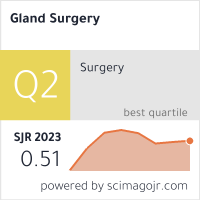DISRUPTION OF THE BLOOD COAGULATION PROCESS AND ITS RELATION TO ANESTHESIA
Abstract
The blood coagulation process is a complex physiological mechanism that maintains hemostasis by balancing pro-coagulant and anti-coagulant factors. Disruption of this balance can lead to conditions such as excessive bleeding or thrombotic complications, which are critical concerns during surgical procedures. Anesthesia plays a pivotal role in perioperative management and can influence the coagulation cascade through various mechanisms, including pharmacological effects, changes in blood flow, and modulation of inflammatory responses.
General and regional anesthesia can alter platelet function, coagulation factor activity, and fibrinolysis, depending on the type and dose of anesthetic agents used. Additionally, patient-specific factors such as pre-existing coagulopathies, use of anticoagulant or antiplatelet medications, and surgical stress further complicate the coagulation profile. Understanding the interplay between anesthesia and coagulation is essential for minimizing complications such as hemorrhage and thrombosis.
This study explores the impact of anesthesia on blood coagulation, focusing on the mechanisms of disruption, risk factors, and strategies for mitigating adverse outcomes through tailored anesthetic and perioperative management. Enhanced knowledge in this domain is vital for optimizing patient safety and improving surgical outcomes.





